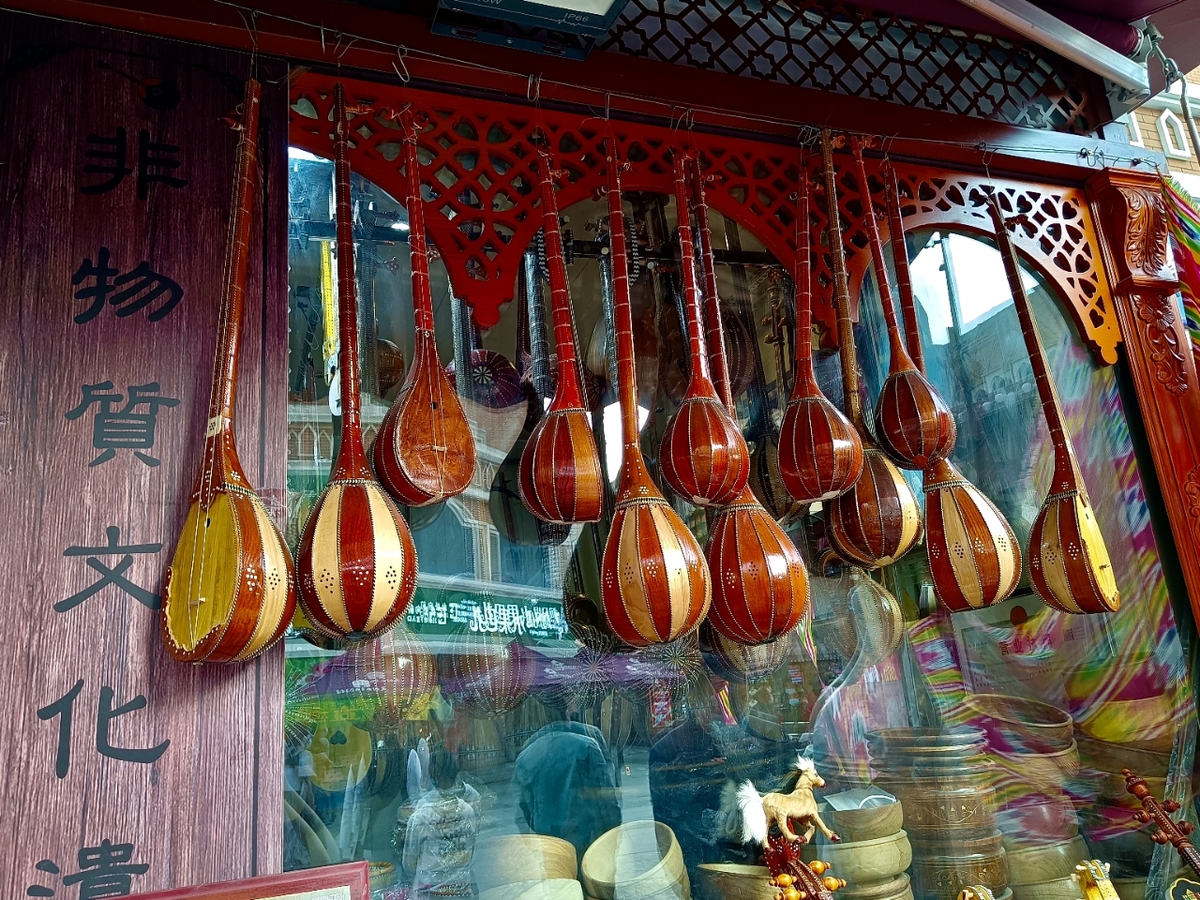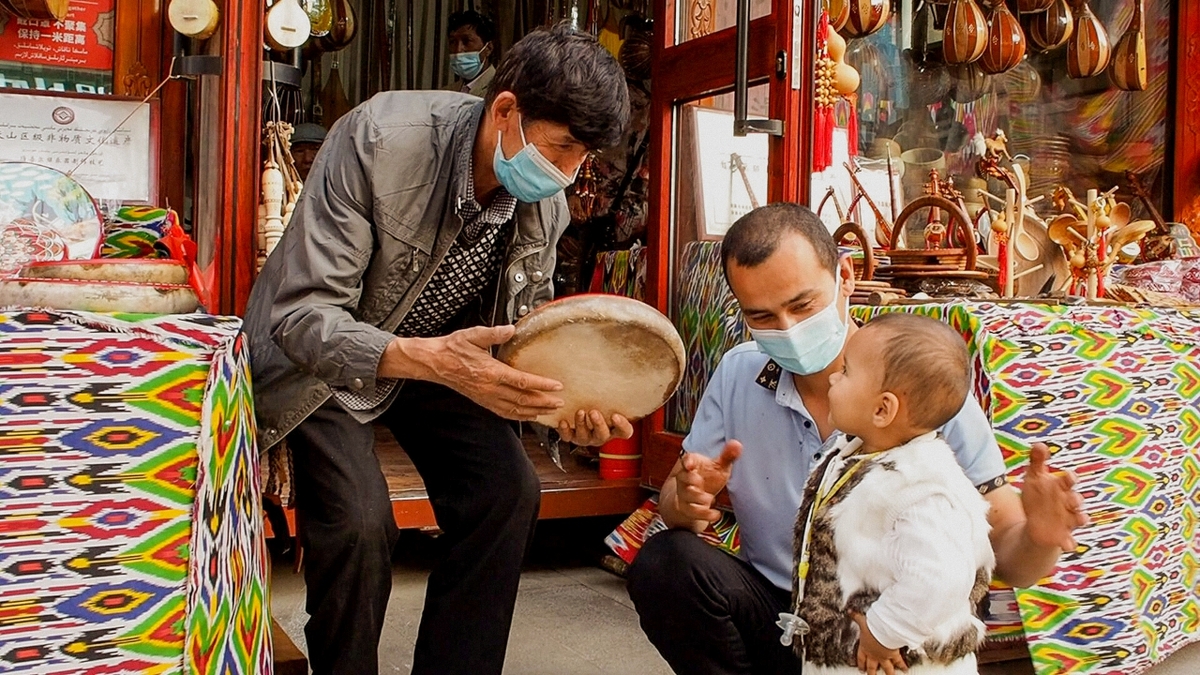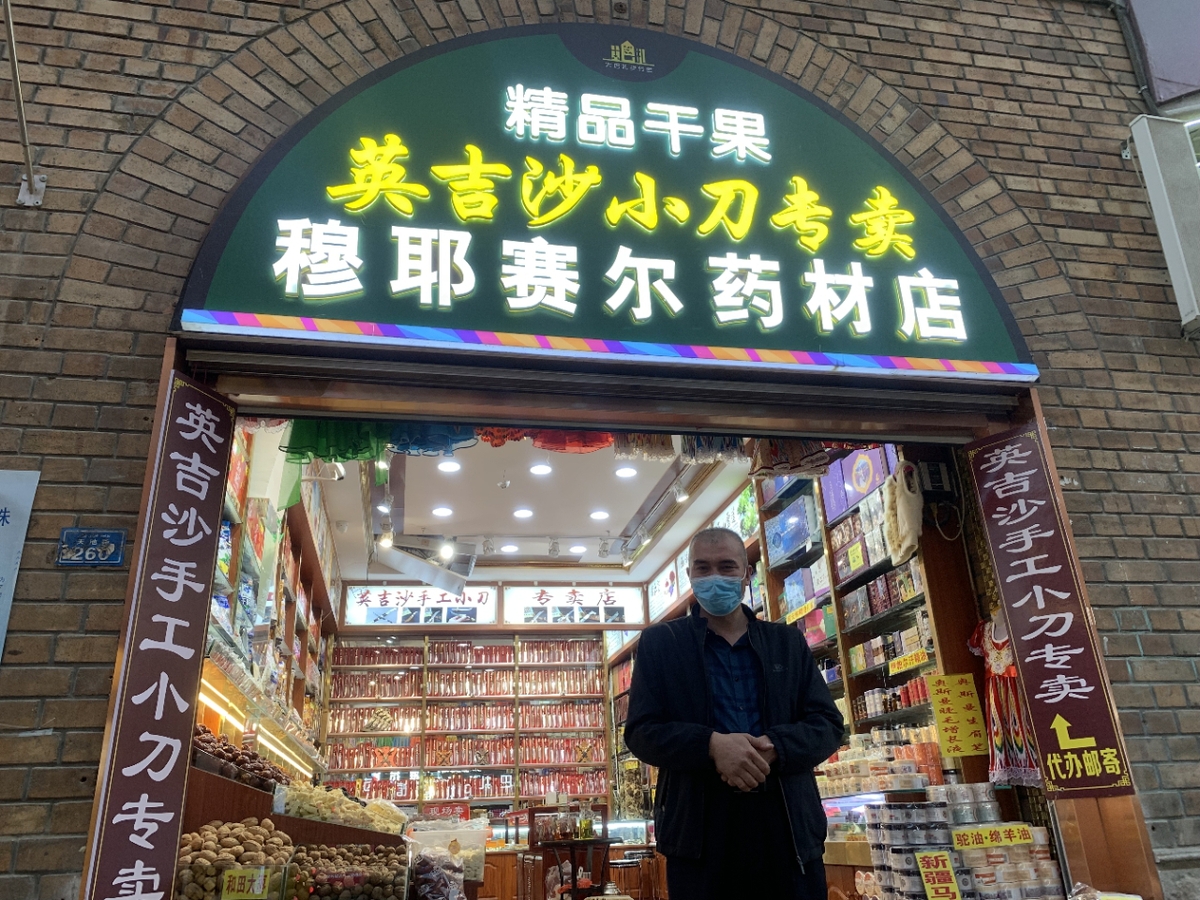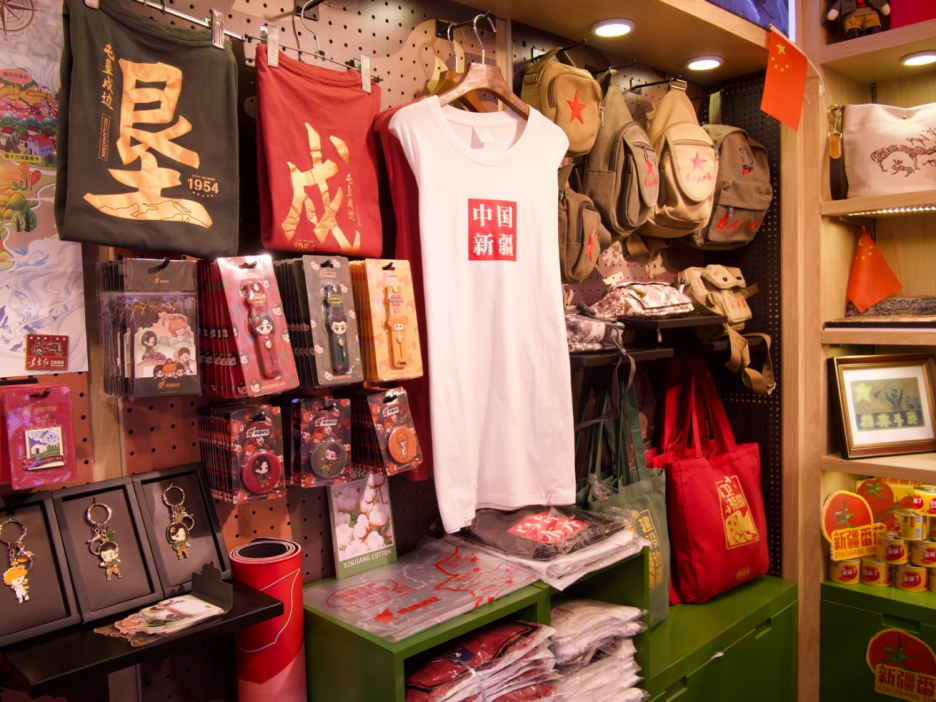International Grand Bazaar features Xinjiang's colorful cultures
chinadaily.com.cn | Updated: 2021-09-29 20:37
The Xinjiang International Grand Bazaar, located in downtown Urumqi, capital of the Xinjiang Uygur autonomous region, is a window for visitors to get a taste of the region's colorful cultures.
Strolling along the streets, tourists can hear the pleasant music of a dutar, a traditional stringed instrument of the Uygur people, coming from a nearby shop, where people are milling around outside taking pictures.

Abdurahman Mamat, about 70 years old, often plays the dutar with his friends at a shop that opened at the bazaar for selling the instrument. "When we are happy, we will play music and sing folk songs together," said Abdurahman, who has been playing the instrument for more than 20 years.
The experienced dutar player also teaches people from different places to play the instrument. Most of his students are tourists who had heard him play and returned to learn it.

"I have taught nearly 100 students of different ages and ethnic groups," Abudurahman said, "They play the dutar and sing together, and their closeness is just like pomegranate seeds."
There will be more heirs to dutar music in the future, he added.

Elsewhere in the bazaar, Abduriyimhaji Awut, 47, runs a small shop selling Yengisar knives, popular souvenirs for tourists in Xinjiang. The knife is named for its origin — Yengisar county in southern Xinjiang.
With a history of more than 400 years, the small knife is durable, and people often use it to cut their foods, repair their saddles and do other daily work.

The knives Abduriyimhaji sells are more like ornaments. The ornate handles are usually made of bone, horn, shell and other materials with various patterns.
Born in Yengisar county, Abduriyimhaji loves the knives deeply. In his childhood, he learned how to make them from his neighbors.
The knives were unknown to visitors outside of Xinjiang, and he had confidence that they would win tourists' hearts, so he left the county for Urumqi in 1999 and started his business.
"I want to promote this specialty from my hometown to people all over the world. They are of high quality because craftsmen use high-quality steel to make them," he said.
After the bazaar opened in 2018, he opened his shop there.
"Now I am living a much better life selling knives," Abduriyimhaji said. He added that he was happy to see the knife from his hometown gaining popularity with the development of tourism.

Bazaar visitors can also find souvenirs from the Xinjiang Production and Construction Corps, an unique and specialized paramilitary organization in the autonomous region.
XPCC Memory, which opened in May, sells creative and cultural products embodying the spirit of the XPCC pioneers who contributed to the development of the region.
"The corps contributed a lot to Xinjiang," said Zaynaypu, a 25-year-old shop assistant of the Uygur ethnic group. "They helped maintain Xinjiang's economic development and social stability."

The badge suite, featuring important moments in the corps' history, is one of the bestselling items, she said.
"A whole set consists of 14 pieces," she said as she presented visitors with one of the badges depicting a museum of the corps' reclamation history in the region.
"There are also postcards of landmarks, T-shirts themed with the need to safeguard border areas, refrigerator magnets and traditional items used by the corps," she said.

"Actually, we sell nostalgia," Zaynaypu added. "Many visitors told me that their grandparents or parents had reclaimed desert in Xinjiang decades ago, and they had a strong attachment to the region."
Liang Fengbo, the product manager of the design of the XPCC souvenirs, was born and raised in Xinjiang. The designs, including the use of cartoon characters, are meant to encourage young people to learn about the XPCC's efforts to safeguard and develop Xinjiang.
"If you look at our brand logo, you can find a little man holding a ball of flame. It's our wish that the spirit of the XPCC be passed down," he said.
Gao Xixi, Lei Linqing, Lv Xinyi, Dai Yaxin, Zhou Qian and Mukaddas Alim in Urumqi contributed to this story.
Video by Mukaddas Alim
























